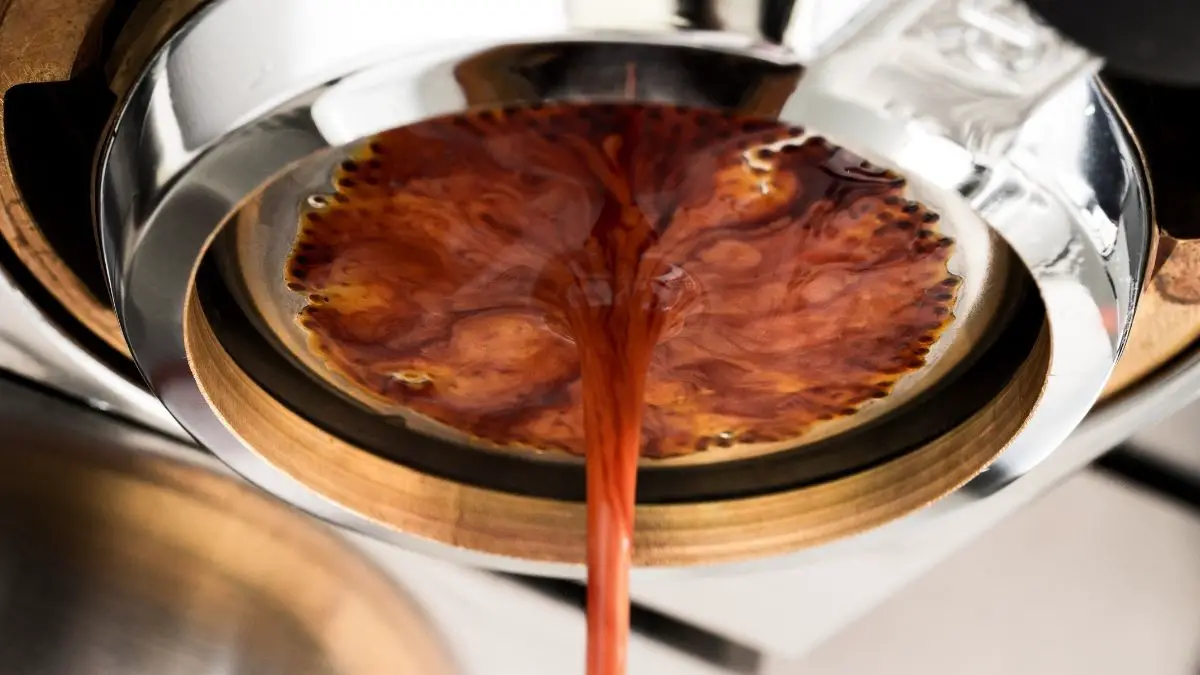You roasted premium ground coffee, and it smells wonderful. However, when you finally taste it, it just doesn’t taste that good. You’re wondering, what went wrong?
Over-extracted coffee may seem terrifying, however, it’s not hard to avoid this if you understand the issue. In this article, we will discuss what over-extraction means.
How Does Extraction Work?
The extraction process consists of several phases. Sugar dissolves fast once acids and fats are removed and dissolved. It takes a bit longer for fibers to dry. The tannins, that give harshness to the coffee’s taste profile, are the slowest to emerge. However, too much of these can cause the coffee to taste harsh.
What Effect Does Extraction Have On Coffee Flavor?
Various chemicals have different melting points or periods to be dissolved in the water.
This is important in extraction since coffee beans are not made up of a single chemical.
All of the tastes, antioxidants, fats, and other compounds found in coffee beans are extracted at different rates and times.
Since these items all have distinct flavors, brewing in a method that under or over extracts your coffee might result in significant variations in the taste of your coffee.
What Does Over-Extraction Mean?
The primary qualities of over-extracted coffee are extreme astringency and bitterness. To further understand the concept of bitter taste, consider goods like pure caffeine, tonic water, or Campari.
Caffeine is thought to be among the primary sources of bitterness in coffee, although there are other chemical elements in the ground coffee that influence the flavor, such as various acids.
Signs That Your Coffee Is Over-Extracted
Bitter And Harsh Flavor
Coffee that has been over-extracted will have an overwhelming bitter flavor. Of course, certain bitterness is desirable, such as the bitterness found in dark chocolate. However, this type of bitterness is much less of a component of your coffee’s taste profile and much more overwhelming than it will control your beverage in a distasteful way.
Dull And Dry Flavor
On the other side, your coffee may taste less powerful, as if it is just half as strong as it ought to be. That’s because the water has removed all of the lipids, sugars, and acids from the coffee beans and also has begun to dissolve down the natural fibers.
Because they’ve been left for so long, stale or old coffee beans can occasionally taste this manner, but if you’re dealing with a fresh crop of coffee beans but this still occurs, the probable reason is over-extraction.
Astringency
When you start drinking, you may notice that your mouth feels dry, despite the fact that you’ve already consumed some wetness. This sensation has been compared to that of sipping a cheap wine or just being very dry.
This astringency also is a symptom that the coffee has been over-removed since it indicates that perhaps the process of extraction has extracted the nutrients found in plant fibers. These are known as polyphenols. They did not just taste harsh, but they may also adhere to proteins in the saliva and absorb natural fluids in your mouth, giving you such a dry mouth.
What Causes Over-Extraction?
We understand that striking the right balance is essential to making the ideal cup of joe, however, it doesn’t have to be all about trial and error. You may fine-tune just a few factors to achieve the desired flavor. These are several things that you should be aware of:
Brewing Time
Brewing time has a significant impact on how extracted coffee is, particularly with brewing processes wherein the coffee grinds remain in touch with water for an extended period of time rather than the water just passing through.
The water should be in touch with the ground coffee for just enough to produce an excellent cup of coffee, yet not so long that this really breaks all of the chemicals found in the beans in the coffee.
The length of time that the coffee and water are in close interaction with one another. The more time you brew the coffee, the more water will be extracted from the coffee grounds. Brewing time differs greatly, so make sure to consult your instruction handbook or recommendations for your selected brewing technique.
Water Temperature
The warmer the water, the faster the extraction will be. As the ground coffee and water mix, temperature accelerates chemical reactions. The faster water absorbs water-soluble chemicals, the warmer it is. The temperature of the water used to make coffee must be around 93 degrees Celsius or 200 degrees Fahrenheit.
If the temperature is greater than this, the coffee would be over-extracted.
Size Of Coffee Grounds
The finer the grounds, the quicker the extraction.
Consistency
The last major cause of excess extraction is the consistency of the coffee grinds.
If the coffee beans are not ground properly, the water has a much more difficult time reaching the soluble chemicals.
How To Avoid Over-Extraction
The ideal extraction process permits the greatest qualities of the coffee to enter your cup without letting the harsh tastes of excess extraction overpower the coffee.
You must be able to taste all of the roast’s wonderful flavor nuances. This should not taste as cheap supermarket coffee or coffee that has been sitting inside the pot for much too long.
To get the optimal degree of extraction, be sure to adhere to all consistency and brewing time requirements for your selected brewing technique. This will allow you to experience the coffee’s richness as well as the combination of finish and acidity.
Here are quick pro-tips to take note of while brewing your coffee:
Adequate Pressure When Preparing Espresso
When brewing espresso, one source of energy for extraction is pressure. It operates in the same manner as the temperature of the water does. The higher pressure equals more extraction.
Turbulence While Preparing Filter Coffee
When preparing filter coffee, the term turbulence involves the movement within the coffee bed. Moving the water and coffee grounds exposes a larger surface area to the water, allowing for more extraction. Greater extraction means more turbulence.
Channeling
The term channeling refers to the unequal flow of water into the coffee bed. Channeling can occur for a variety of reasons, including inadequate dripping and distribution of water within a drip coffee filter or a broken coffee puck during espresso making.
End Notes
So, that’s it. We hope that these pointers will assist you in getting nearer to your perfect cup of joe. Keep in mind that striking the right combination for you is more important than what professionals or studies suggest. If you really like a little more bitterness in your cup of coffee, consider modifying the brewing process to see whether you can obtain it.
Have fun brewing!

